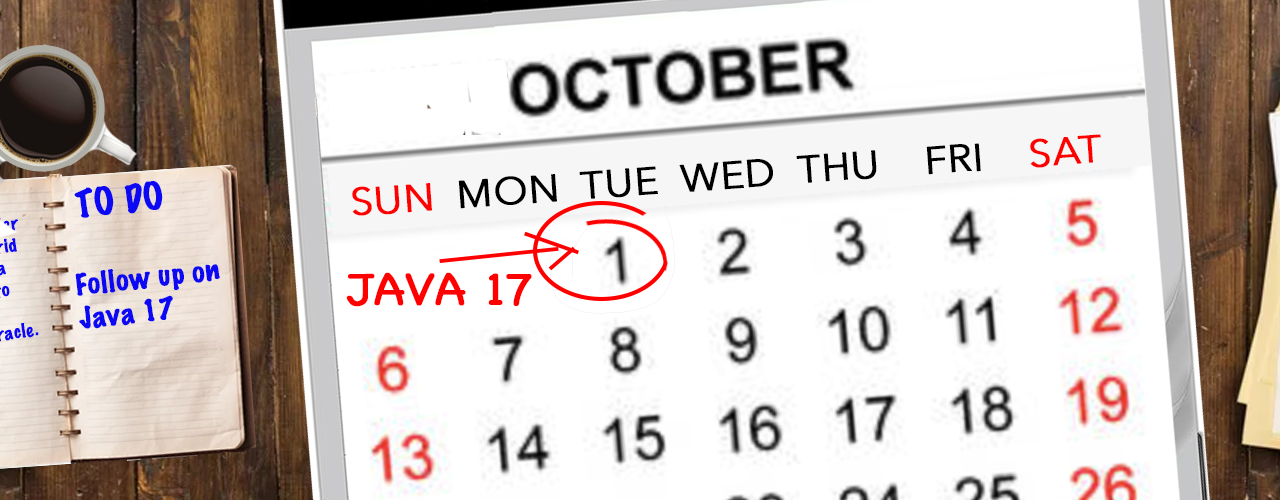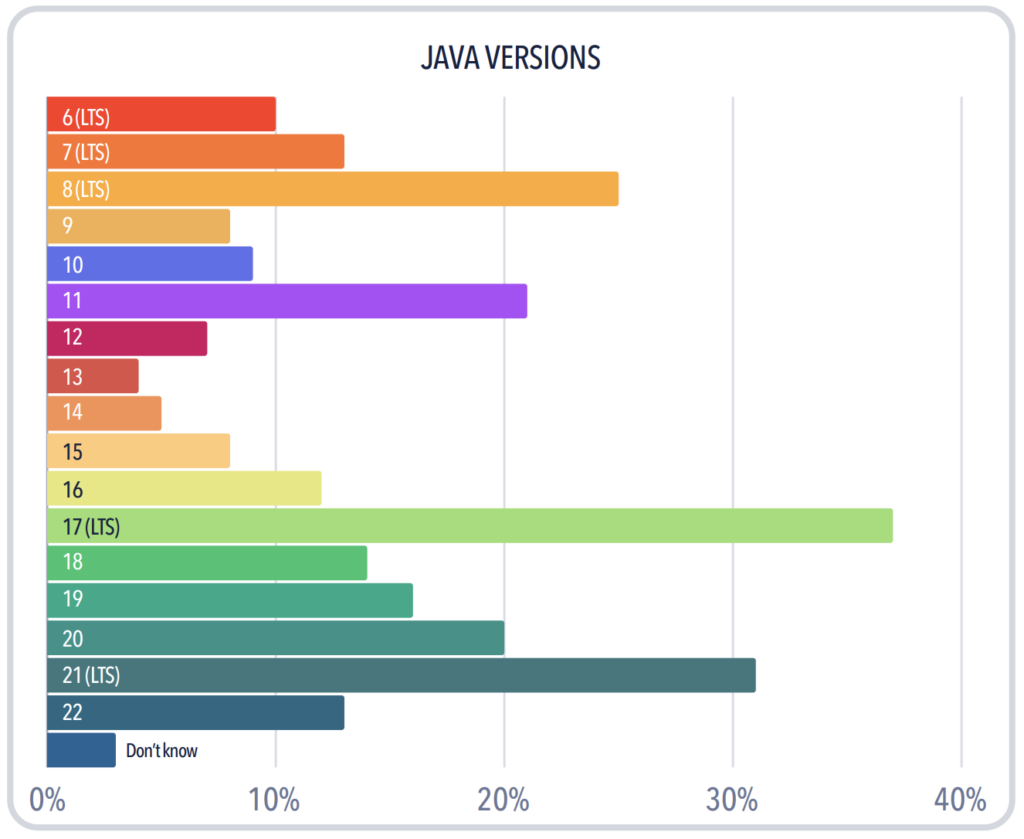
Are you running applications on JDK 17 in production? If so, you’re in good company. In 2024 a survey of more than 660 Java users, 37% of participants use JDK 17. While that’s down from 45% according to a 2023 survey, it’s also the most popular JDK right now, according to the data.
If you’re using Oracle Java SE version 17 in production, you could be in trouble. Here’s why and what you can do about it.

Understanding Long-Term Support Java releases
Oracle releases a new Long Term Support (LTS) Java version every other year. If you have an Oracle subscription, you can use an LTS version for free until one year after the next LTS is released. Oracle released JDK 21, the current LTS, in September 2023. Which means that as of today, Oracle Java 17 has transitioned from the permissive Oracle No-Fee Terms and Conditions (NFTC) license that allows free commercial and production, including access to all quarterly security updates to the Java SE Oracle Technology Network License Agreement (OTNLA).
Under the OTNLA, you will have to pay for Oracle Java 17 even with an Oracle subscription.
What are your Oracle Java 17 options?
To continue to protect your critical enterprise Java applications and infrastructure with security updates and support, here are your options:
- Follow the terms of the OTNLA and pay for an Oracle Java SE subscription. The cost of Java SE Universal Subscription is based on the total number of employees across your organization. This includes full-time, part-time, and temporary employees, as well as those of your agents, contractors, outsourced personnel, and consultants who contribute to your internal business operations. For most organizations, this option is prohibitively expensive.
- Move to the next LTS, JDK 21. You will have to continually upgrade to the next LTS every two years to remain on a free version. Depending on the age and complexity of your applications, they might not run as expected on JDK 21. This option stretches the resources of many organizations.
- Migrate your applications to an alternative like Azul. Azul offers a drop-in replacement for Oracle JDK 17. Like Oracle Java SE, Azul Platform Core offers 365x24x7 support from Java experts along with both full Patch Set Updates and Critical Patch Updates on a strict SLA. For most organizations, this is the easiest and best long-term solution.
Learn more in our Java 17 FAQ.
Why you should consider migrating to OpenJDK
Azul is the leading Java distributor with Azul Platform Core as the top Oracle Java alternative. It can help keep your critical apps and infrastructure secure and compliant with a typical savings of 70% vs Oracle Java SE.
Some benefits of Azul Platform Core include:
- Drop-in replacement for Oracle Java including equivalent engineering support
- Security-only Critical Patch Updates provided on a firm Service Level Agreement
- Support for more Java versions like Java 6 and 7, which are no longer supported by Oracle
- Support for the widest variety of hardware and software platforms
- 100% success migrating hundreds of enterprises off Oracle Java
- Azul Platform Core is typically 70%+ less expensive than Oracle Java SE.
Visit our website for more information on Azul Platform Core.




